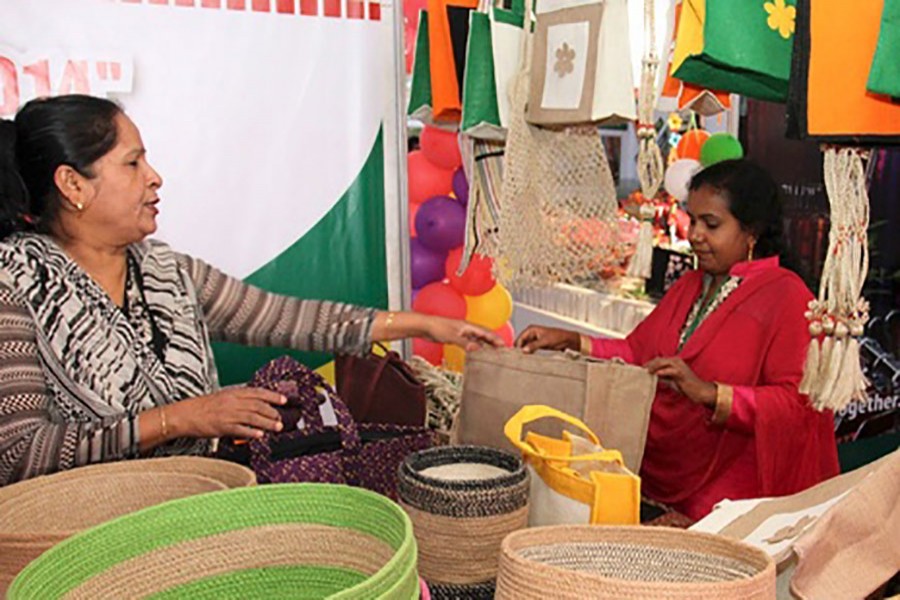A high priority to small and medium enterprise (SME) for Bangladesh's economic development virtually loses much of its importance as the final draft SME policy remained shelved, sources said.
They pointed out that the final draft of the SME policy was completed in mid-2016 and supposed to be placed before the cabinet for approval since then. But it has been put on the backburner for nearly one and a half years.
"Till today, the policy has not been placed to the cabinet though it is fully ready," said an official engaged in the policy formulation under a donor-financed project.
He said the Ministry of Industries (MoI) completed all necessary review of the policy shortly after the draft finalization.
Ministry officials engaged in the SME policy refrained from commenting as to why approval was not done but said there wasn't any problem in the policy.
"So far my knowledge, there is no problem in the SME policy," said one of the ministry officials.
Sources said the project under which the SME policy was drafted also lost its life in November 2016, without seeing its fruition.
The MoI initiated the move to formulate the SME policy under the European Union (EU)-funded project styled 'INSPIRED (Integrated Support to Poverty and Inequality Reduction through Enterprise Development)'.
The project was taken to reduce poverty by supporting the development of SMEs (Small and Medium Enterprises) in the country.
The SME Cell at the Ministry of Industries, the SME Foundation, Bangladesh Bank, Bangladesh Bank Training Academy (BBTA) and Bangladesh Institute of Bank Management (BIBM) are the stakeholders.
Though the minister and the secretary had announced several times their resolve to implement the policy, but to no avail so far, the sources pointed out.
SME's importance has been given in all related policies, including industry policy, for helping the country maintain 7.0 percent GDP growth and graduate to middle- income-country status.
They said the policy was to support the sector's operational challenges like institutional credits, unavailability of working capital, low levels of technology, low productivity, and lack of marketing facilities and market-access problems.
The government has taken SME development as an instrument to continue its higher growth and given it due importance in other policies, like strategic plan 2021, seventh five-year plan, and industrial policy.
So far, the country's SME sector has been governed with SME Policy Strategy formulated in 2005.
Project sources said the comprehensive national SME Policy is to guide all relevant policies with an appropriate action plan to promote policy and regulatory reforms in order to create an enabling environment for these enterprises.
According to the Asian Development Bank, an estimated 7.5 million MSMEs (including cottage) account for over 97 per cent of all enterprises in Bangladesh. The share of SMEs in GDP is estimated about 25 per cent.


